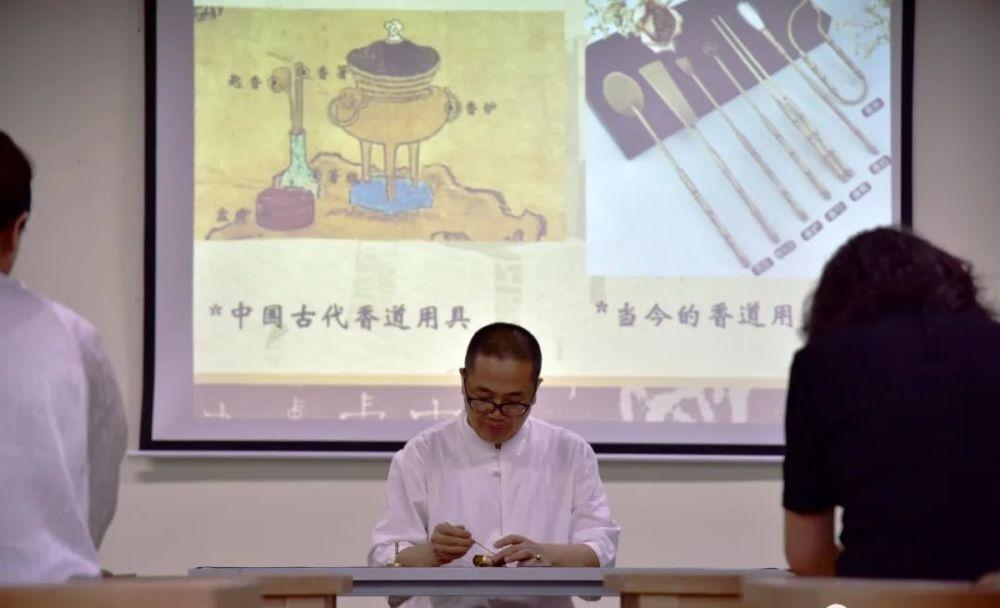Traditional incense-making techniques are intangible cultural heritage items
—

In recent years, the whole society has set off a wave of Song Dynasty fever, and people are particularly interested in the culture of the Song Dynasty, scholars, especially the elegant life of the Song people.
There was an interesting topic a few years ago, which dynasty would you most like to travel to? The song dynasty with the most answers. The reason is very simple, the Song Dynasty is a dynasty that attaches equal importance to ideals and reality, has both great customs and elegance, and is very suitable for life.
And the most representative of the elegant lifestyle of the Song people is nothing more than the "four kinds of idle things".
The "Four Idle Things" comes from Ned Yon's "Capital City Jisheng": "Where the people of the Four Divisions and Six Bureaus should only be accustomed to it, they should save half the efforts of the guests and the hosts, so they often say: burning incense, lighting tea, hanging pictures, arranging flowers, and the four kinds of idle things, and not allowing the family to be killed."
Today's love for the culture and lifestyle of the Song Dynasty certainly has the charm of the "four idle things" itself, but more is the yearning for the ideal spiritual world of Chinese literati and doctors represented by Su Dongpo and Huang Tingjian. Flowers, incense, paintings, and tea are not created by the Song people, but they are given the quality of elegance by the Song people.
In particular, the incense culture, although originating in the Hongshan and Liangzhu culture periods, reached its peak in the Song Dynasty after the accumulation of the Han Dynasty and the Tang Dynasty.
Burning incense is an indispensable embellishment when burning incense for the Song Dynasty literati Moke Yaji. In the Song People's elaborate "diary" "Miscellaneous Knowledge of Decay", it is recorded that "the yanji of the present people often burn incense to entertain guests." Literati and scholars gathered to taste incense and read books, while enjoying the aroma of the incense, while reading the scriptures and talking about painting and discussing the Tao.
Whether it is incense or tea, it is the Song people who have given these details that originally belong to daily life, giving an elegant sense of taste and ritual.
The four idle things done by the Song people emphasize the mental realization in the details, which is not only time, but also the state of mind.
Tasting incense, drinking tea, hanging paintings, enjoying flowers, making it carefully, full of ritual, from the preparation of raw materials, meticulous processes, to the ceremony of finally presenting the moment, from the arrangement of utensils to scenes, every detail, all pay attention to.
"The four kinds of elegance, each with its own exquisite and ritual rules, but also closely linked, there are rituals used at the same time in the tea and wine aromas in the sacrifice, and the tea tasting in life is inseparable from the incense, without incense, the tea tasting is less interesting, and the incense is also indispensable to the accompaniment of tea."
Xu Bo, a famous scholar during the Ming Dynasty, said in "Ming Tan": "Tea tasting is the most pure thing, if there is no good incense in the furnace, there is no fun; burning incense has a pleasant rhyme, if there is no famous tea floating bowl, there will be less victory." Therefore, tea and incense are used in two phases, and one is indispensable, how many people can there be? ”
There is incense, there is tea, how can there be no flowers, no flowers and no elegance. When the hand burns incense and the green smoke is swirling, it is a rare and elegant atmosphere to taste the fragrant tea, look at the danqing of the ancient and modern magic hands, and the flowers of the four seasons.
Song poetry also has a lot of content about incense, tea, flowers, and paintings, and the shadows of idle things are also common in the paintings of the literati of the Song Dynasty. Su Shiyun: 'Burning incense leads to a quiet feast. Borrow incense and tea to find 'Zen'.